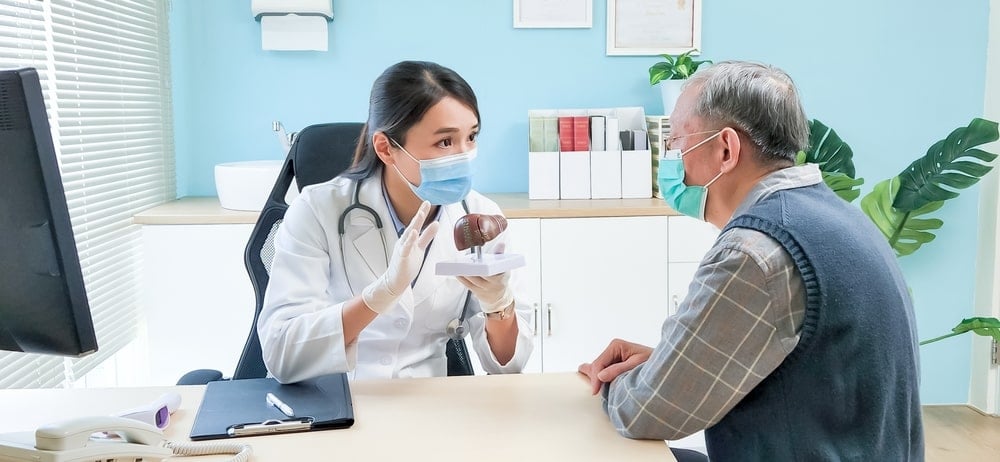Ibs Clinical Trial
in San Antonio
Help Us Make Your Diarrhea and
Abdominal Pain a Thing of the Past
Join Our
IBS-Diarrhea Clinical Study
Receive up to $525 for Your Time and Travel
- Call (470) 227-8130 or Fill Out the Form Today to Get Qualified
Call (470) 227-8130 or
Fill Out the Form Today to Get Qualified
Understanding IBS Clinical Trial
Clinical trial for IBS are essential for advancing medical knowledge, developing new treatments, and improving patient outcomes.
Clinical trial typically progress through four phases:
Phase 1 – Assesses safety and dosage in a small group of healthy volunteers or patients.
Phase 2 – Evaluate efficacy and side effects in a larger patient group.
Phase 3 – Involves an extensive patient population to confirm effectiveness, monitor side effects, and compare to standard treatments.
Phase 4 – continues to monitor long-term effectiveness and safety after the treatment is approved for public use.




IBS Clinical Trial are Confidential & Beneficial
If you have been suffering from diarrhea and stomach pain for more than 3 months and you don’t know why, you may have irritable bowel syndrome-diarrhea or IBS-D. This condition has been making your life miserable and now medical science has developed promising new investigational medicines that help this condition. To help prove their efficacy and improve the lives of millions living with this life-disrupting condition, Quality Research has a clinical trial that you may qualify for that could help give you back your life while earning up to $525 for your time and travel.
Benefits Of Joining Irritable Bowel Syndrome Clinical Trial
Quality Clinical Research conveniently located in the Alamo district of San Antonio has been bringing tomorrow’s medicines today directly to you. Below are just a few of the benefits you receive by joining this study:
- Complimentary Health exam and medical evaluation
- Advanced investigational medicine
- Compensation for your time and travel
- Being part of finding a cure for you and millions suffering from IBS-D
- No Insurance Necessary
- No proof of residency is required
Join Our IBS Clinical Trial Today!



Causes of Irritable Bowel Syndrome (IBS)
IBS is a complex disorder with no single known cause, but several factors are believed to contribute to its development:
Gut-Brain Interaction: Abnormal communication between the brain and the gut can affect bowel function and sensitivity.
Gastrointestinal Motility: Irregular muscle contractions in the intestine can lead to cramping, pain, and changes in bowel habits.
Visceral Hypersensitivity: Increased sensitivity to pain in the digestive tract can cause heightened discomfort and pain even with normal digestive processes.
Psychological Factors: Stress, anxiety, and depression are linked to IBS, potentially exacerbating symptoms through the gut-brain axis.
Sign Up for IBS Research in San Antonio Now!
5 Easy Steps to Get Tomorrow’s Medicines Today
Simply fill out the form below and Submit
A Study Coordinators will call you for an initial screening and to see if you qualify
The Study Coordinator will schedule the consultation and health exam
Convenient Study Appointments Will Be Set And You May Receive Advanced Study-Related Medication
You get Compensated
Help Make IBS-Diarrhea a Thing of the Past and Get Your Life Back
Receive up to $525
By calling today, you may participate in Quality Research’s IBS-D clinical trial with a new investigational medicine that could help you and millions like you stop suffering from this condition.
(470) 227-8130 or fill out the form
... your IBS-D isn’t waiting.
Frequently Asked Questions
IBS, or Irritable Bowel Syndrome, is a common gastrointestinal disorder that affects the large intestine, causing symptoms like chronic abdominal pain, bloating, gas, and altered bowel habits, such as diarrhea or constipation.
The exact cause of IBS is unknown, but it is believed to result from factors like gut-brain interaction issues, gastrointestinal motility problems, visceral hypersensitivity, infections, inflammation, microbiome imbalances, genetic predisposition, psychological stress, and food sensitivities.
Management strategies for IBS include dietary changes (e.g., low FODMAP diet), stress management techniques, medications to address specific symptoms, probiotics, and lifestyle modifications such as regular exercise.
Common triggers include high-fat foods, dairy, gluten, caffeine, alcohol, and certain high-fiber foods like beans and cruciferous vegetables. It’s important to identify personal triggers, possibly with the help of a dietitian.
Clinical trial are essential for testing the safety and efficacy of new treatments, understanding the mechanisms of IBS, and ultimately improving patient outcomes through the development of new therapies.
Yes, you can participate if you meet the eligibility criteria for a specific trial. This typically involves an initial screening process to determine if you qualify based on your medical history and current health status.
Participants can access new treatments before they are widely available, contribute to medical research, and receive close monitoring and care from healthcare professionals throughout the trial.
While there are benefits, there are also risks, including potential side effects from new treatments, uncertainty about the effectiveness of the treatment, and the time commitment required for regular check-ups and monitoring.
The duration of clinical trials can vary. Some trials may last a few months, while others can extend over several years, especially those involving long-term follow-up in Phase 4.
You can find information about ongoing clinical trial through medical centers, research institutions, and online databases such as ClinicalTrial.gov. Your healthcare provider may also have information about local trial.

